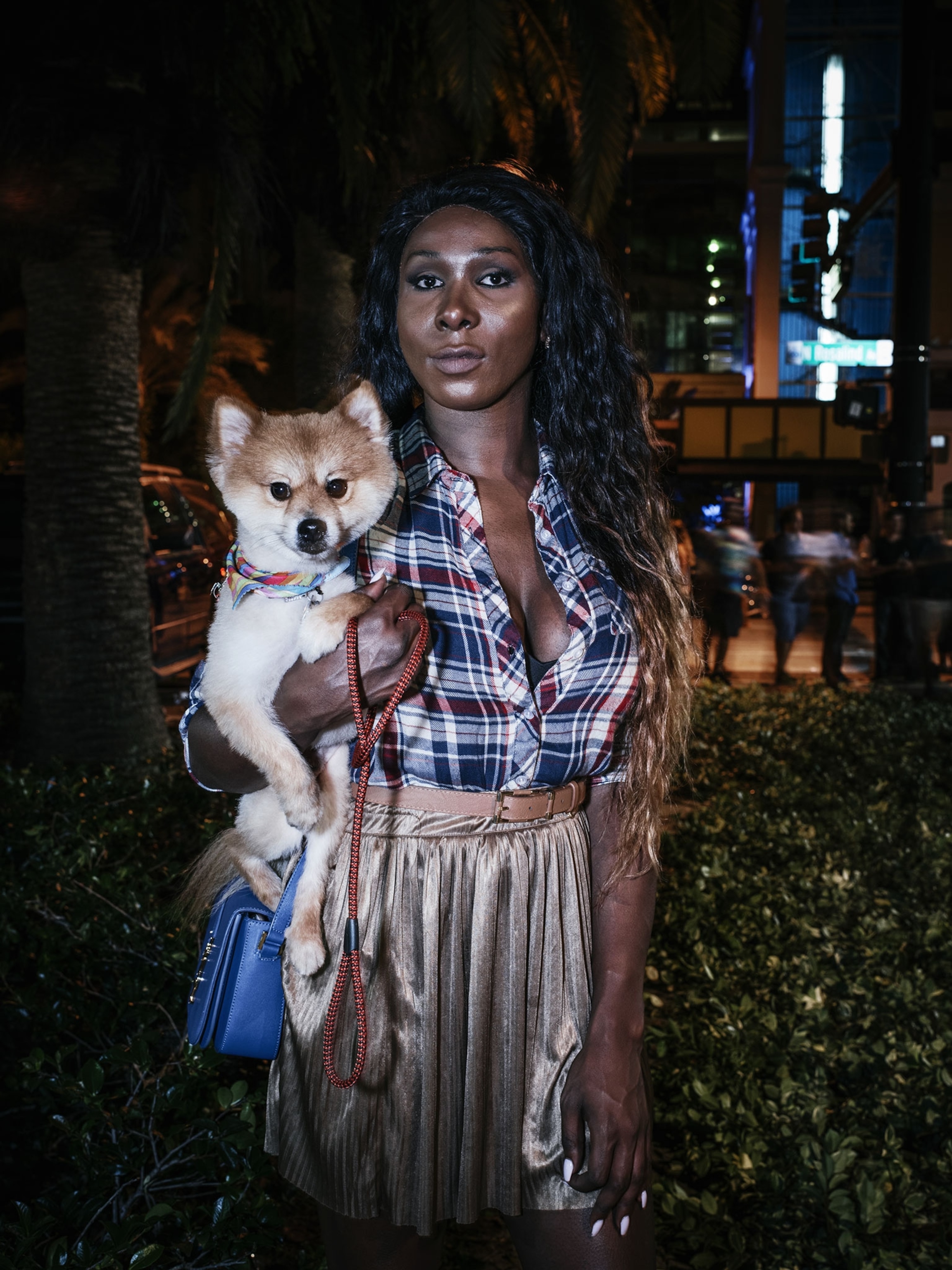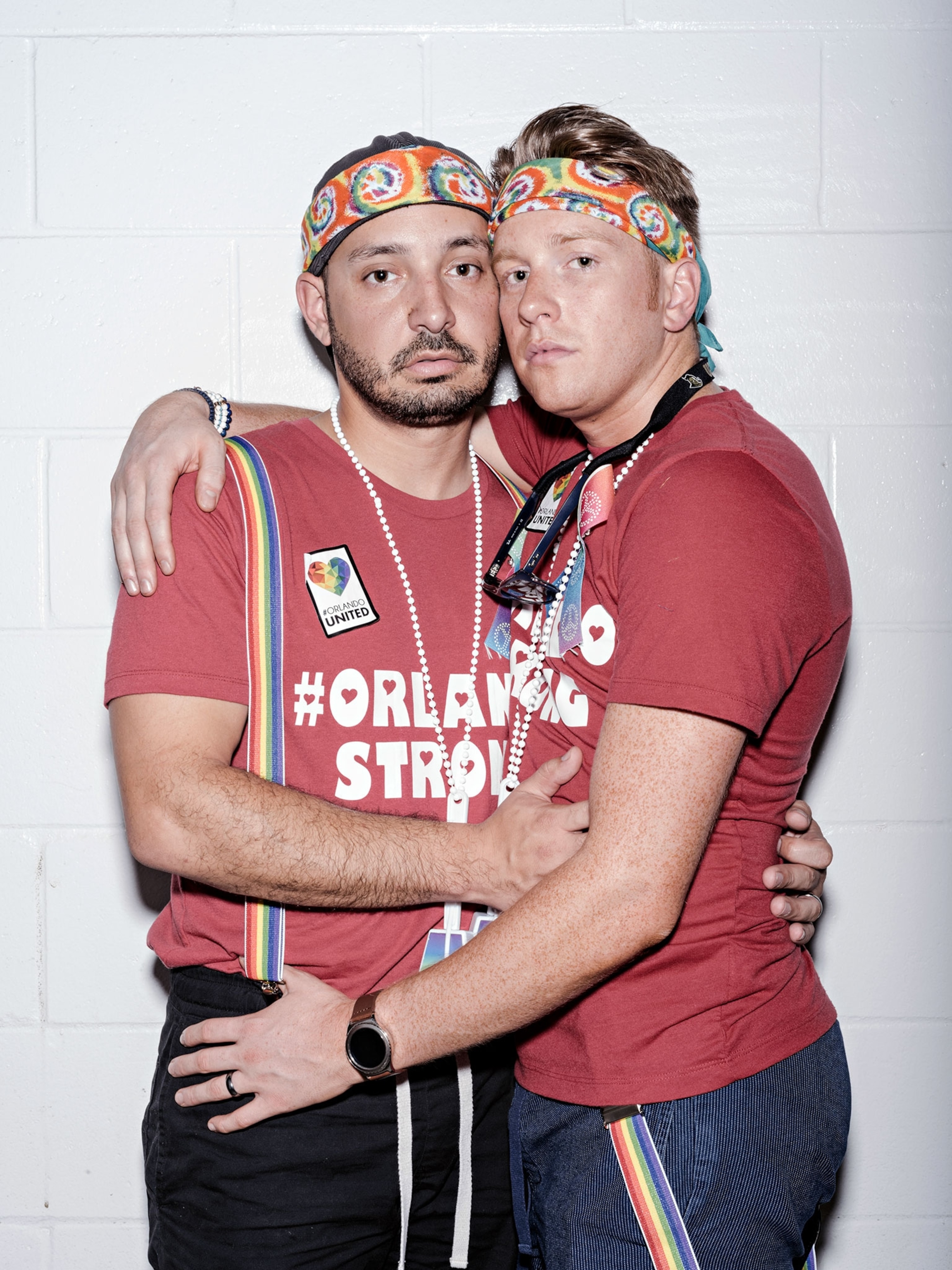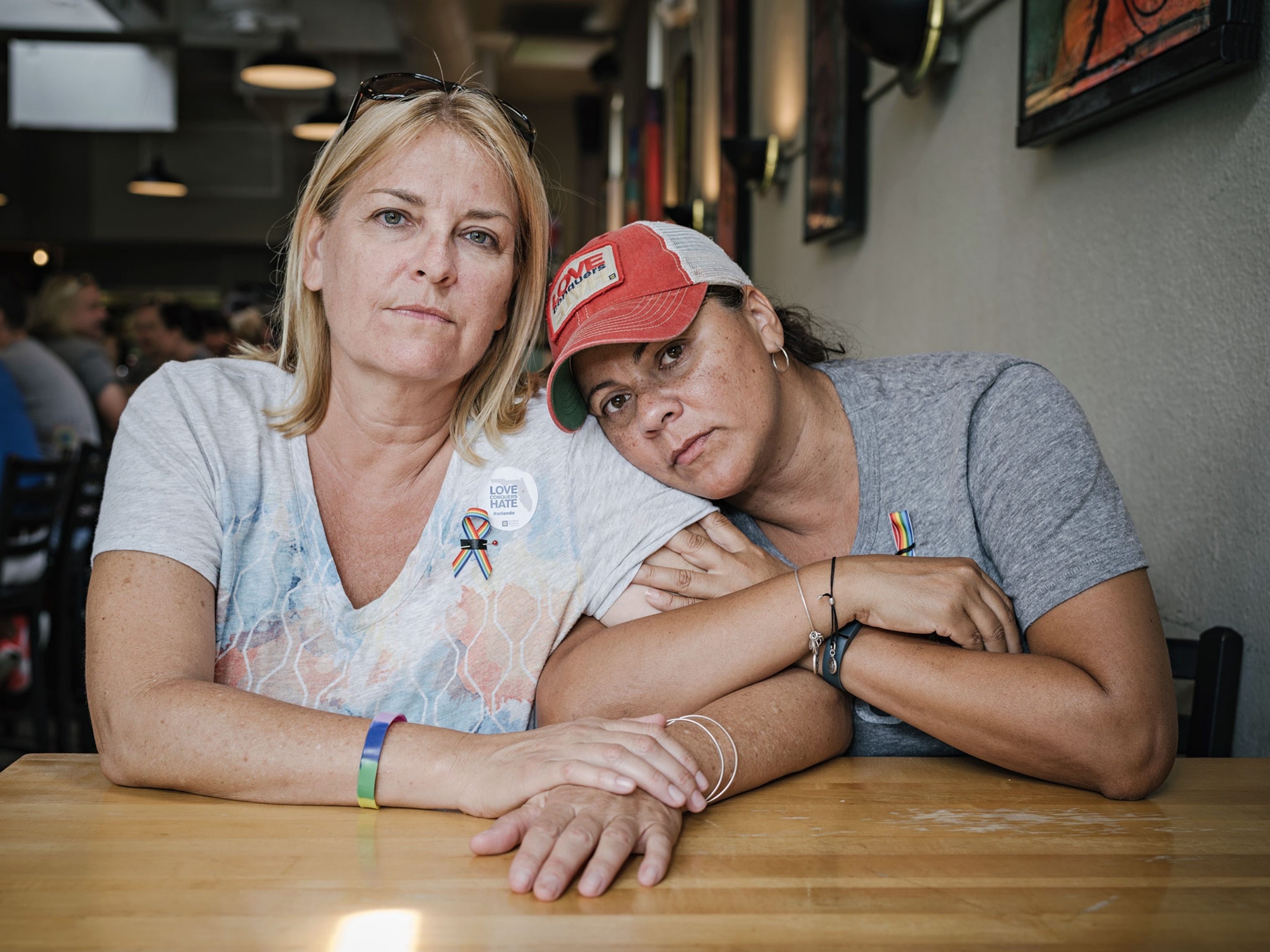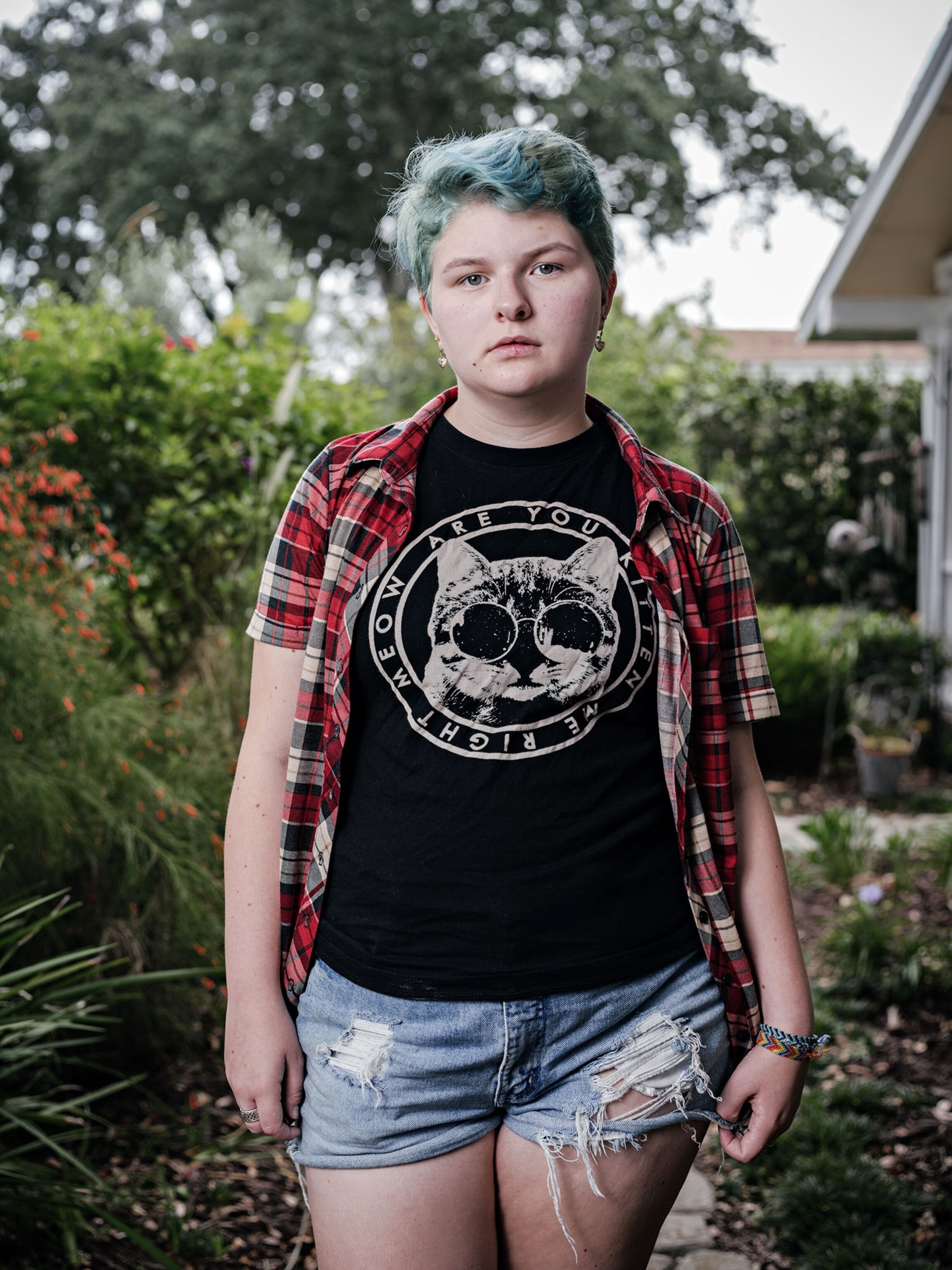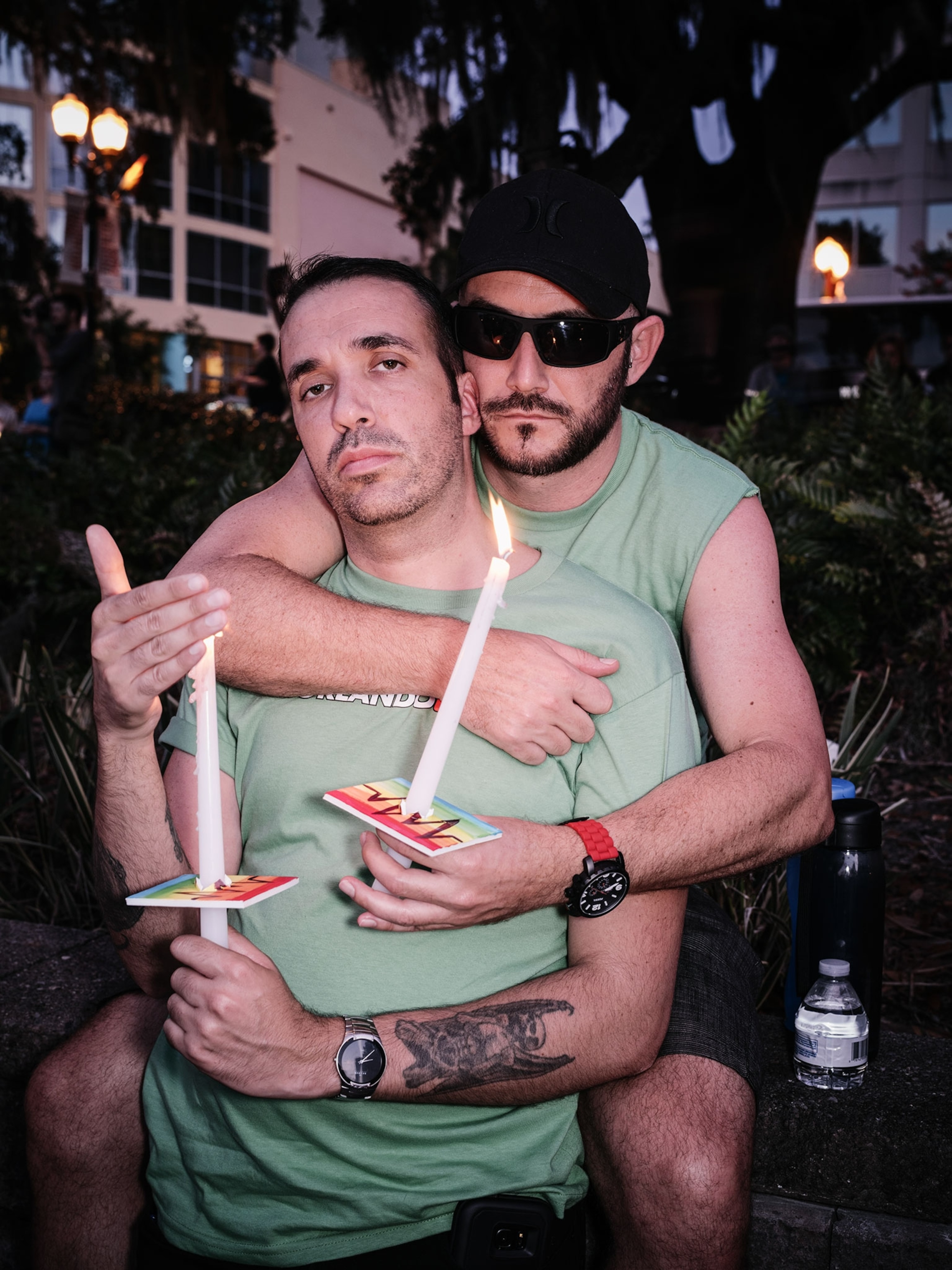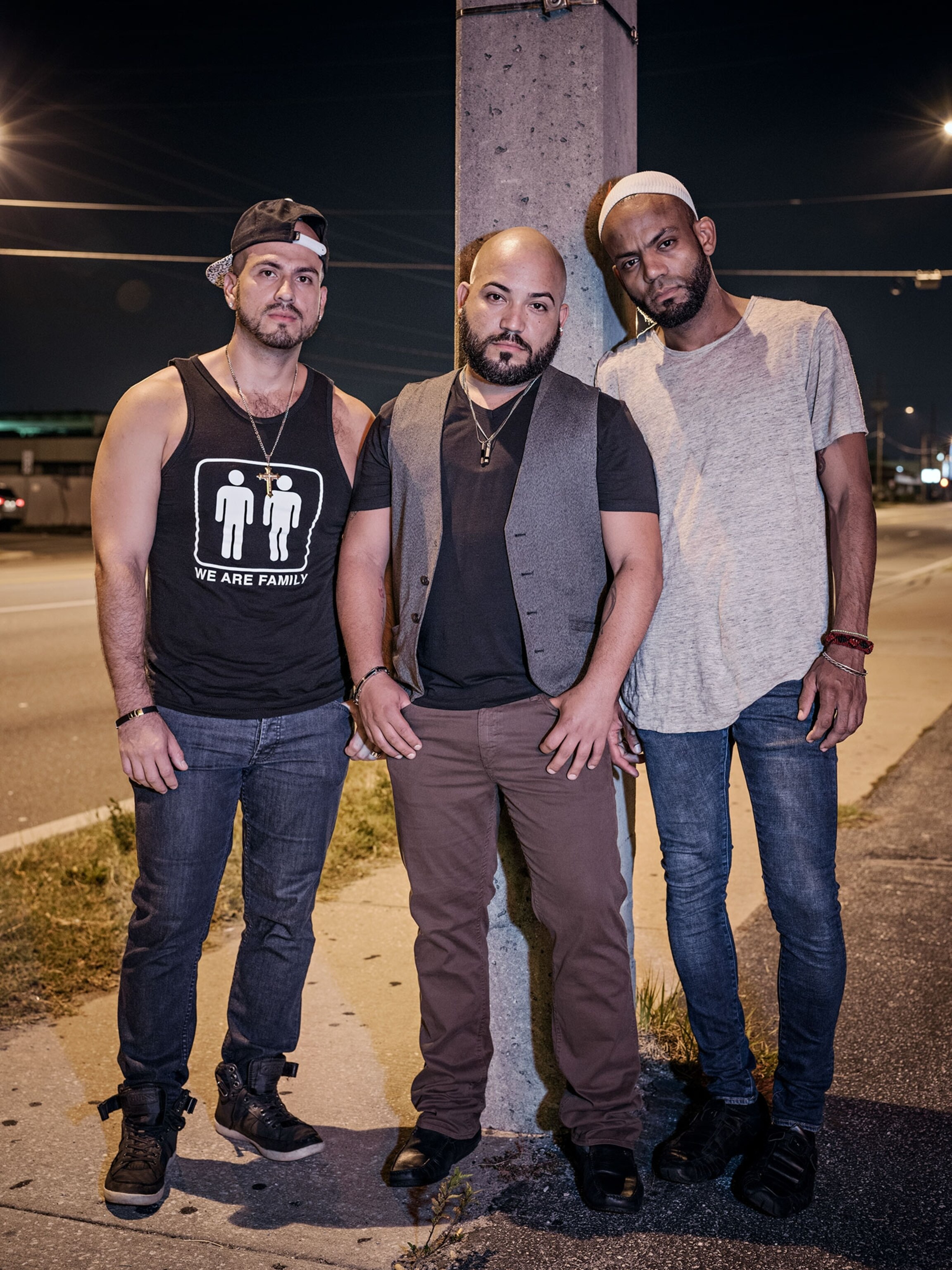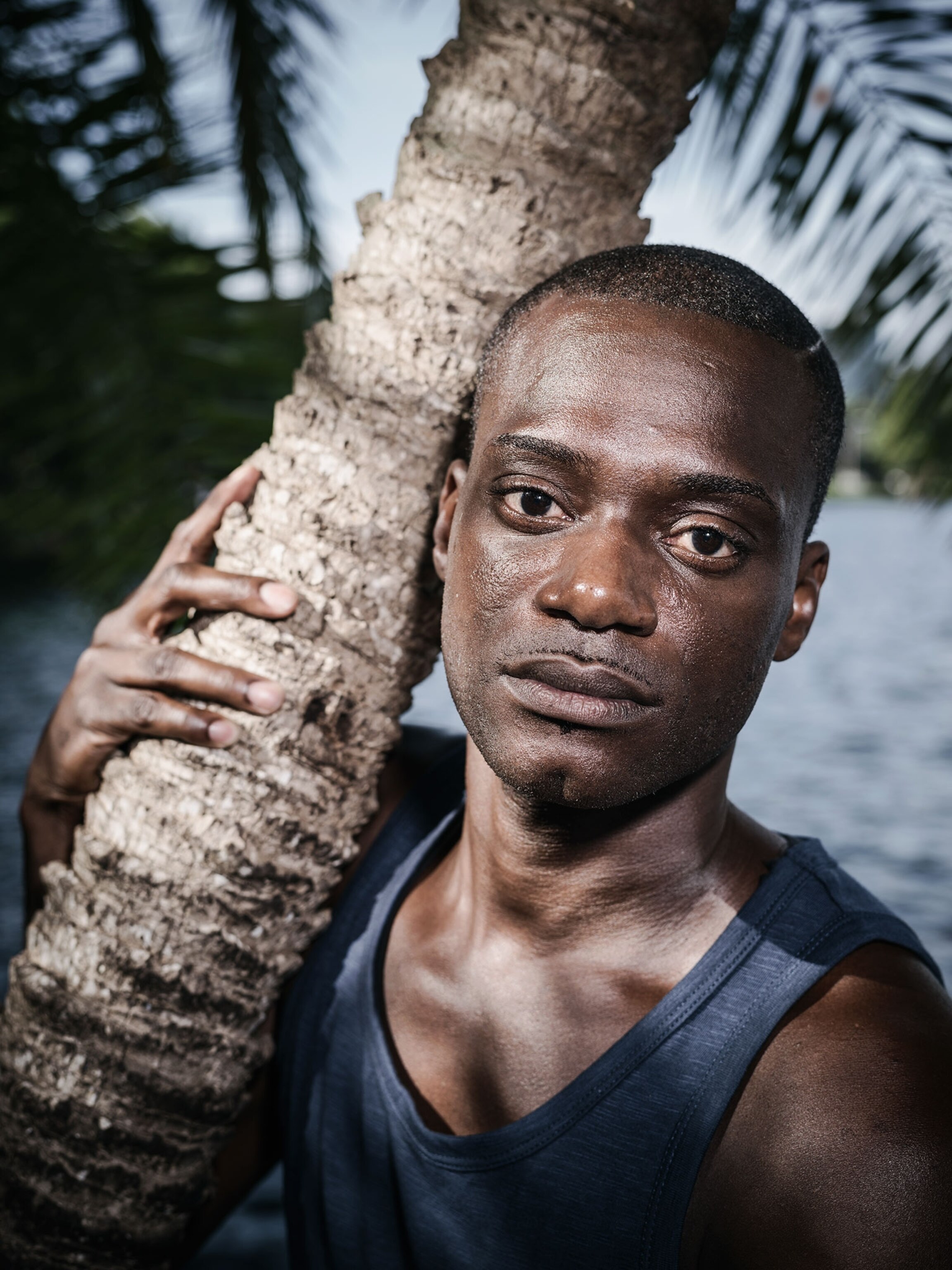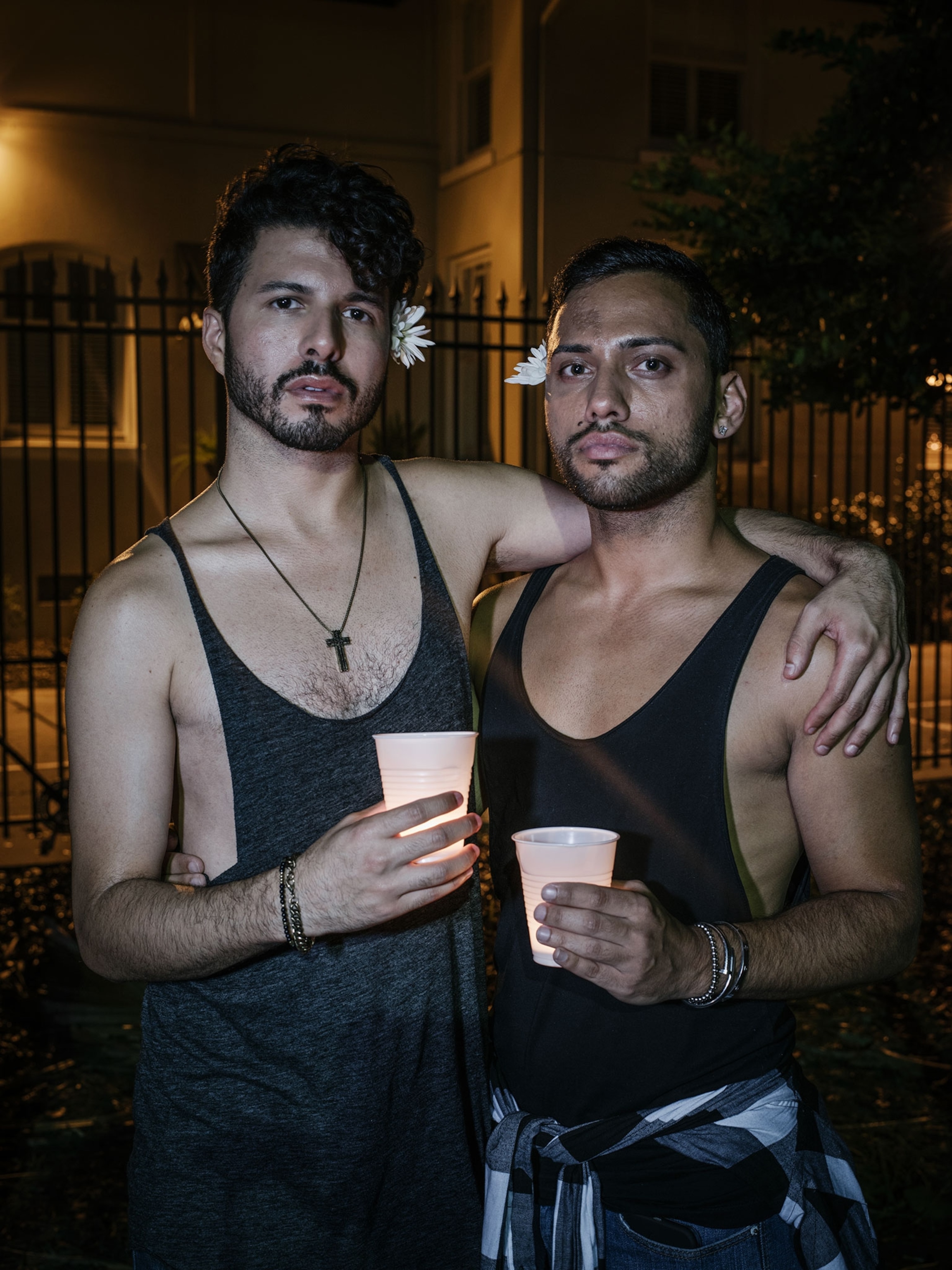Orlando Strong: A Community United After Massacre
In the wake of America’s worst mass shooting, Orlando residents show support for the LGBT and Latino communities.
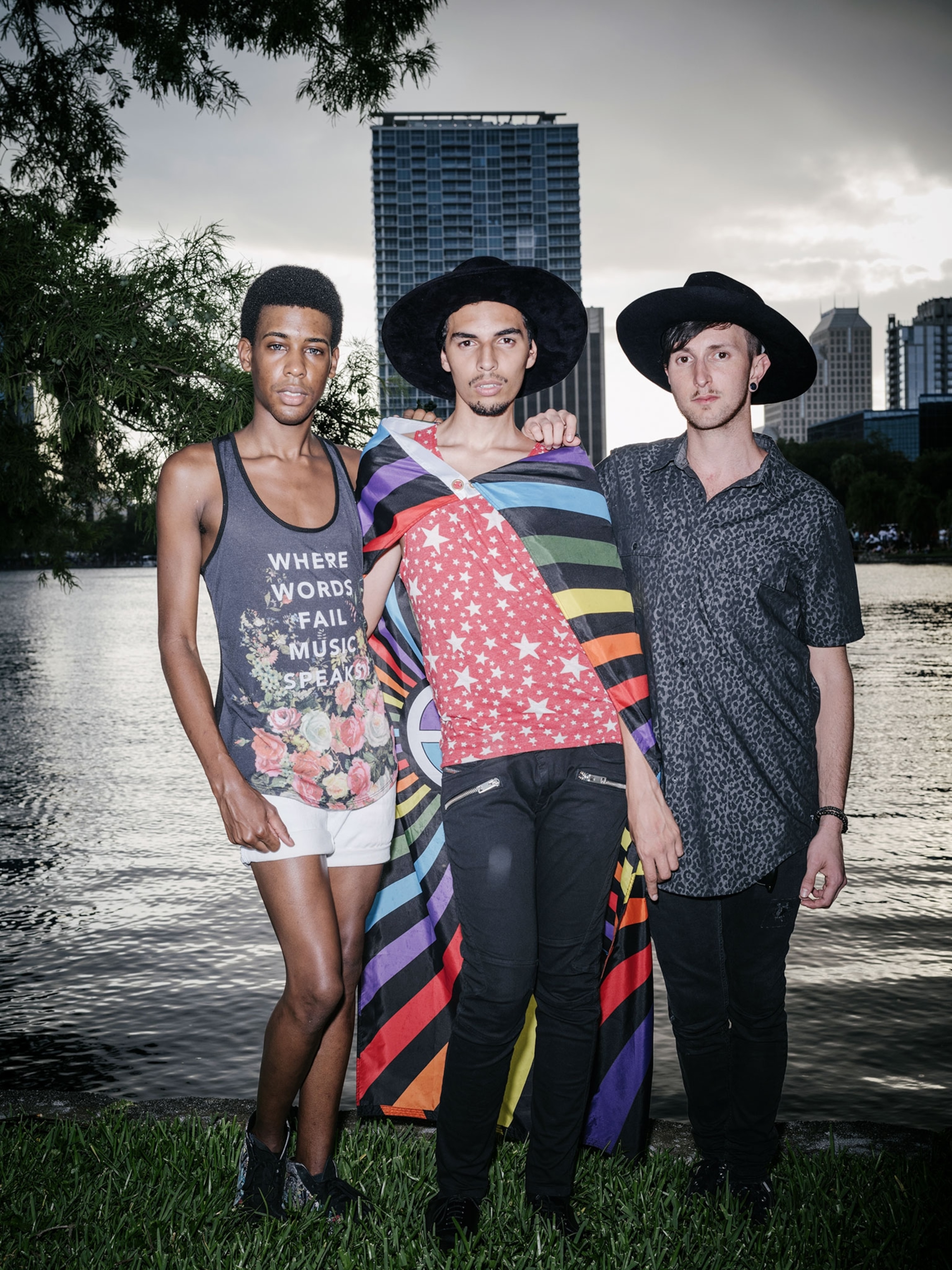
Izzy Vazquez didn’t learn about the late-night mass shooting at Pulse nightclub until the afternoon. “I didn’t have wi-fi on my phone. So when I went to my job and connected, my phone started ringing like crazy,” he said. “The entire night my mom, my sister, everyone in my family was calling me because my brother just recently died, so everyone was worried that something had happened to me too.”
In the days since the attack, in which a gunman killed 49 people and wounded dozens of others in the Orlando nightclub, there have been innumerable questions—about motives, blame, and laws. But there’s one question that seems to hover over Orlando, over the vigils and funerals, over the lines to donate blood and money: Where do we go from here?
The trauma rippled around the world. Pulse was a pillar in the Orlando LGBT community, and on the night of the shooting, it was hosting its weekly Latin Night. More than 90 percent of the victims were Latino. In one fell swoop, the attack was not only the deadliest mass shooting in American history and the worst terrorist attack since 9/11—it was the deadliest hate crime against LGBT people and Latino people.
Now in Orlando, couples worry about their children, survivors grapple with guilt, volunteers try to stay busy. And yet, virtually all of the people we spoke to for these portraits speak of love, unity, and hope.
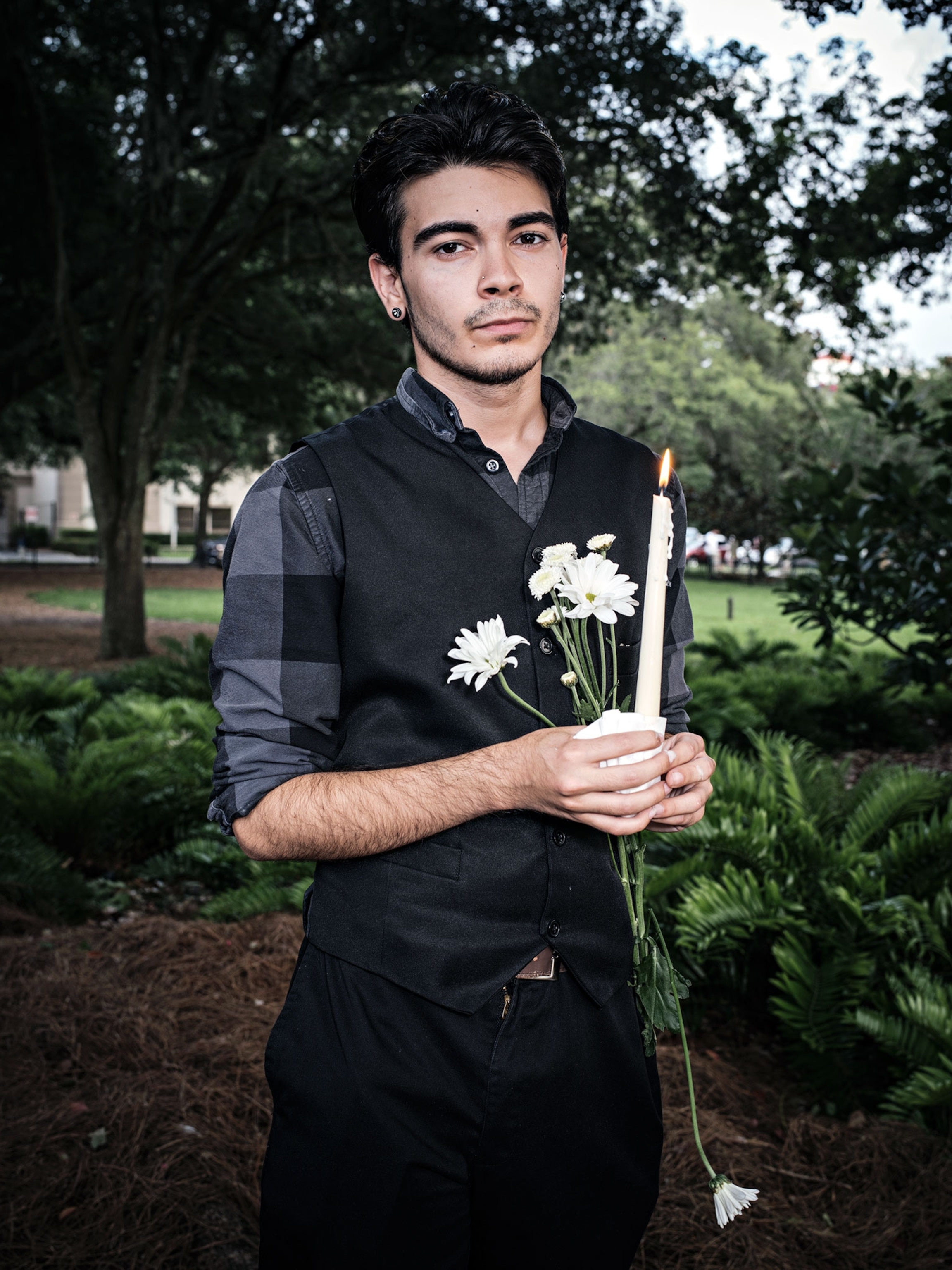
Kevin Borelli
“Everybody needs to be together in these times of need. Not just now but everyday. It can happen to anybody. It can happen anywhere as well. And to know that a specific community was targeted, it’s really heartbreaking and it’s just unreal.”
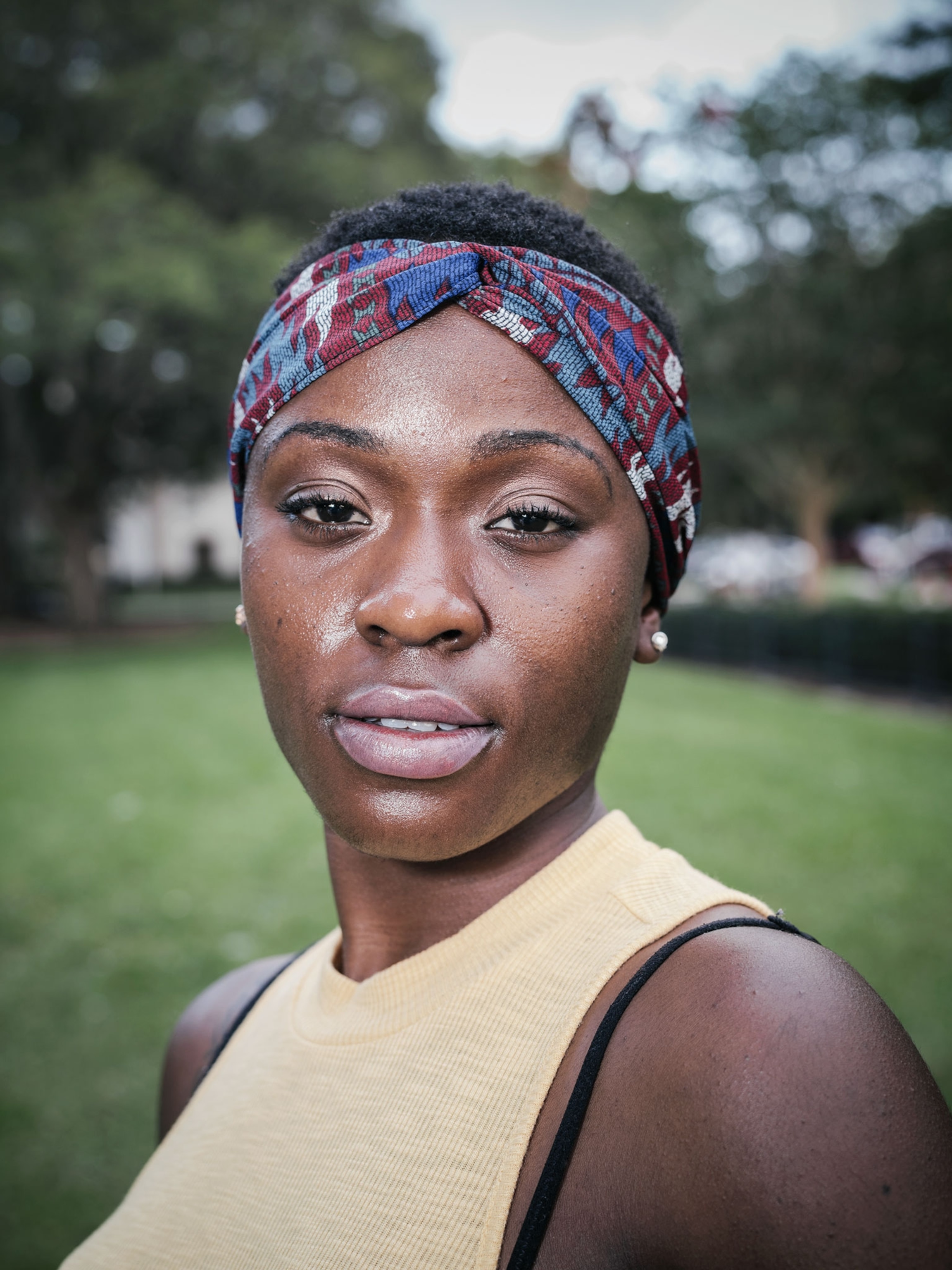
Juna Esperance
“I think it really hit everyone more, ‘cause you know you hear it around the world, but you never think it’s going to be at a place where you lay your head at. So it just kind of makes you put things into perspective, that you never know when your last breath may be, ‘cause it happened so suddenly.”
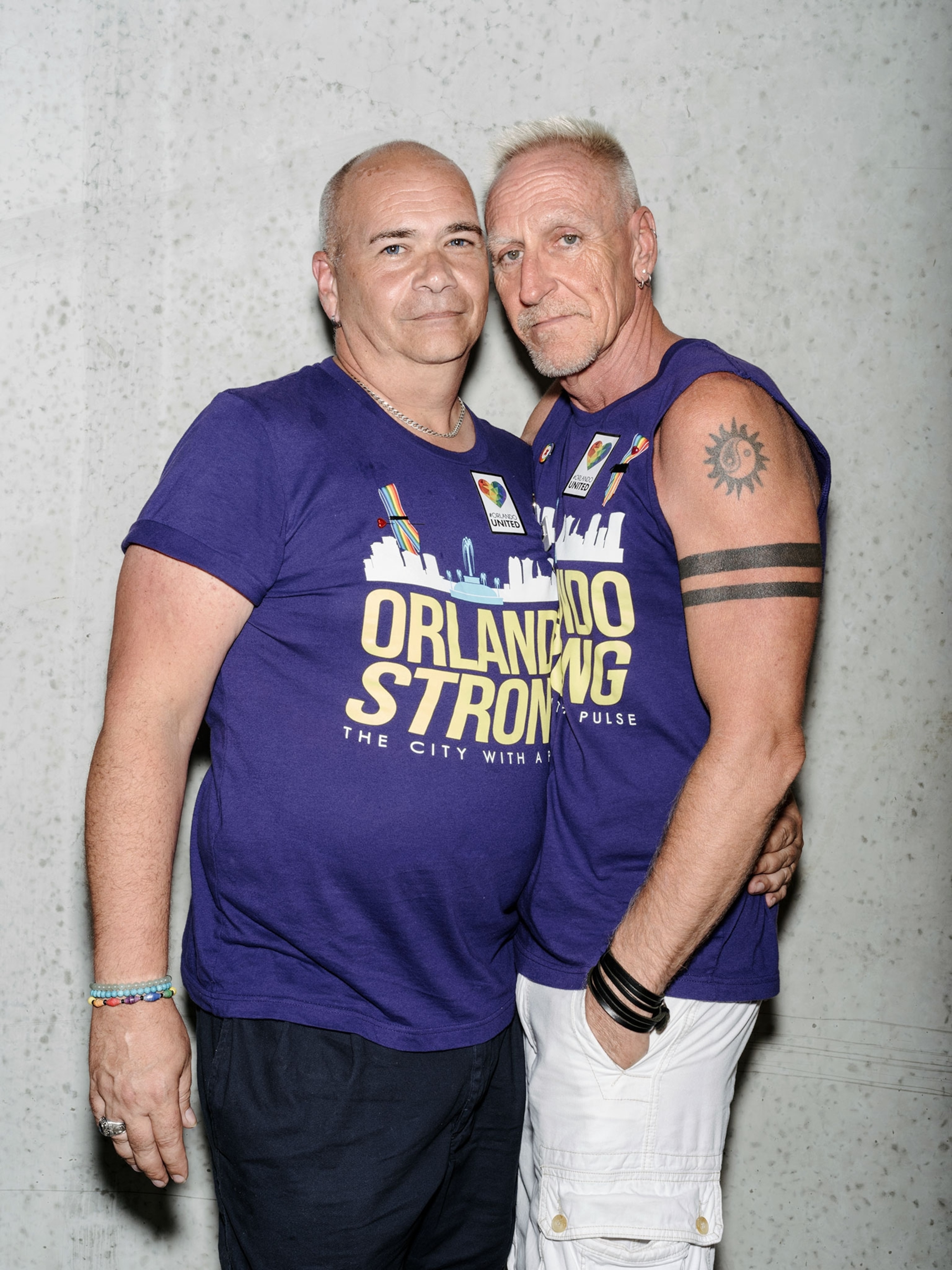
Terry DeCarlo and William Hoelsman
DeCarlo is the executive director of The GLBT Center of Central Florida. Here, he stands with his partner, William Hoelsman (right) at Camping World Stadium in Orlando six days after the shooting. Orlando City Soccer Club competed that day against the San Jose Earthquakes, a match dedicated to the memory of the victims of the Pulse nightclub massacre.
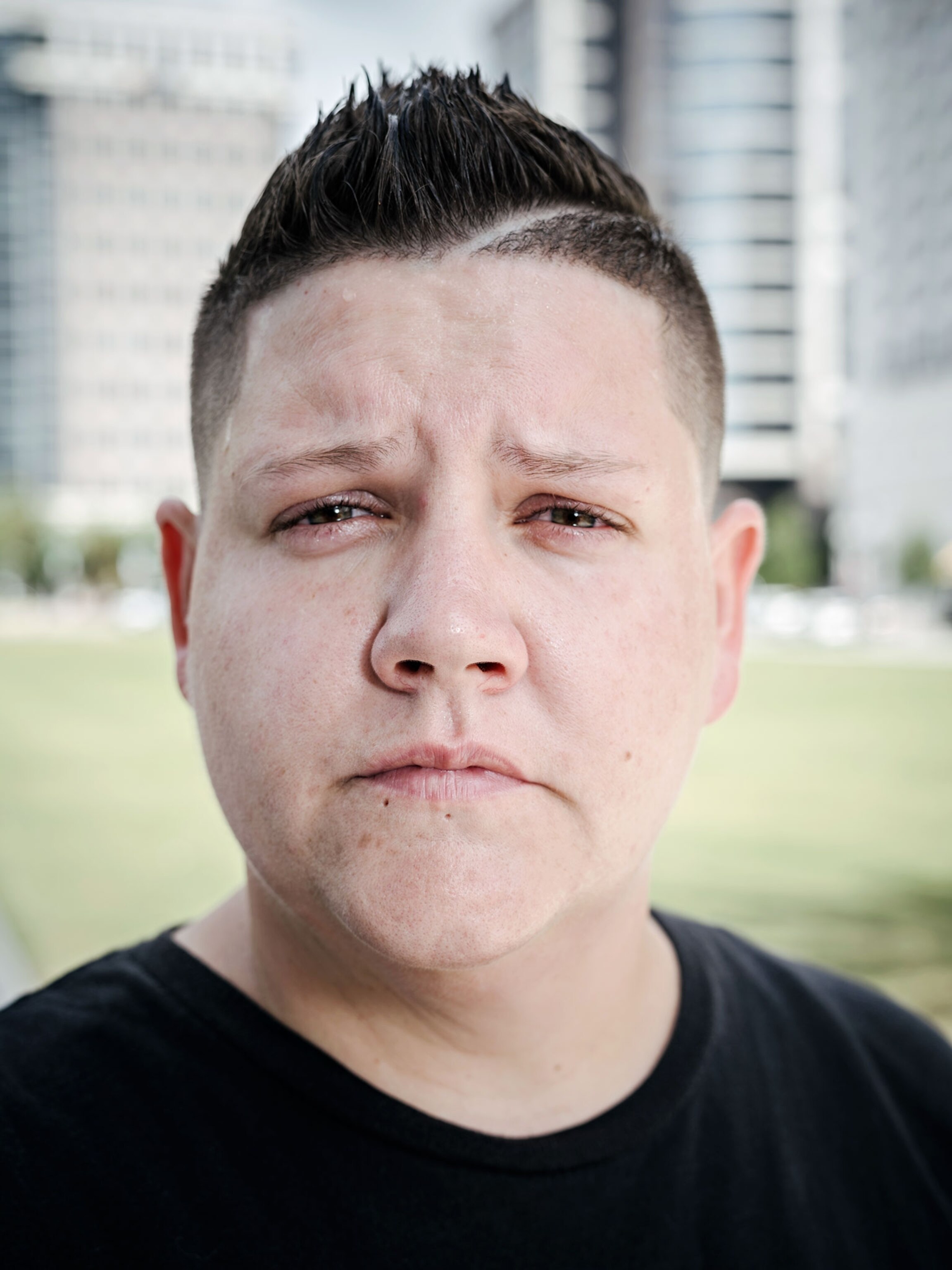
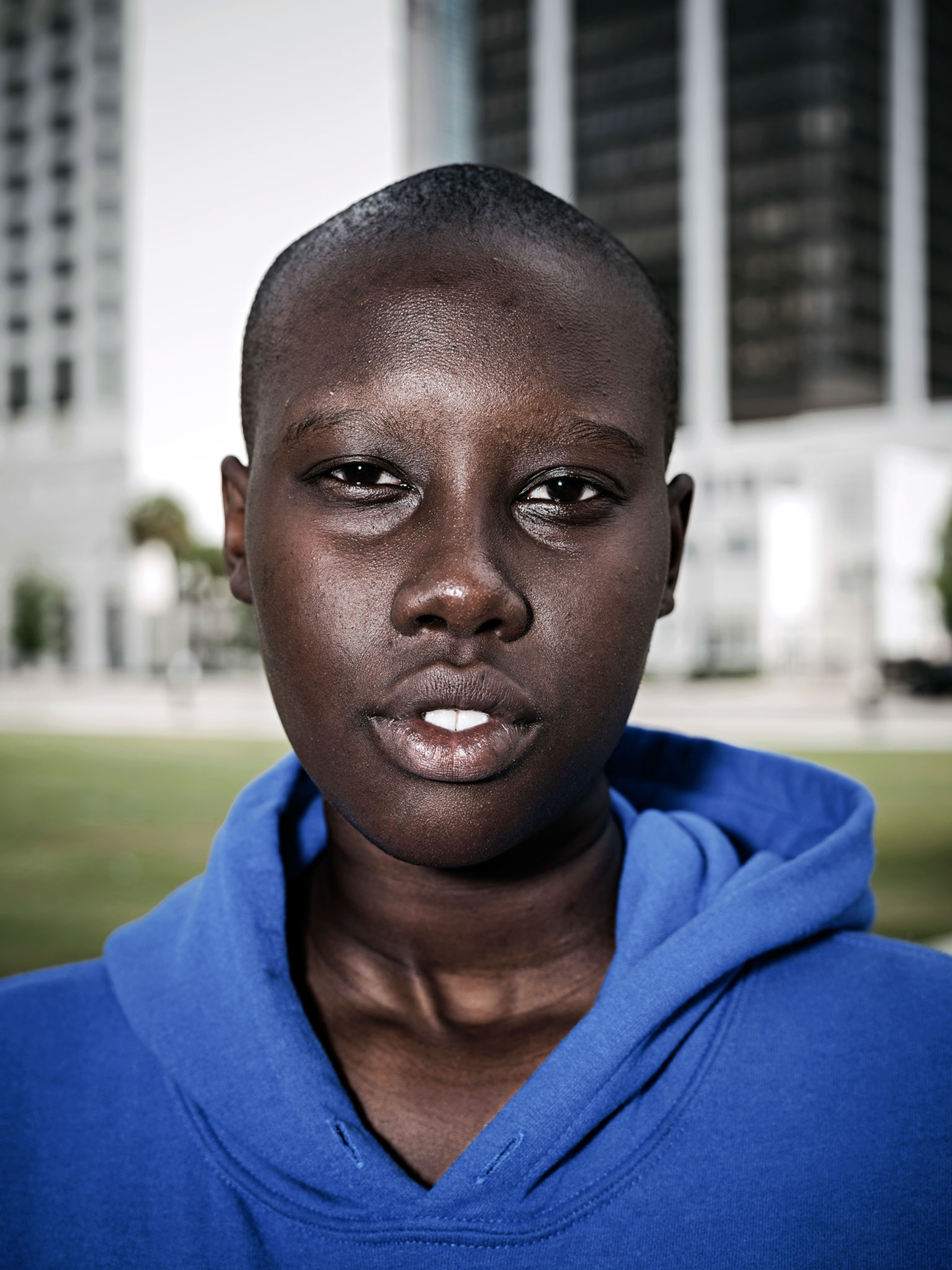
Amy Moshier
“I hate the news. The news make me sad. It makes me angry and I refuse to watch it, but then it happened in my hometown in a club that I used to frequent a lot when I was younger. I literally cannot put the news down. Since it’s happened, almost every day, I’ve been at the LGBT Center volunteering my time. While I’m volunteering, I feel like I’m doing something and the hurt doesn’t hurt as much watching all the love here in Orlando and everybody coming together. Gay, straight, black, white, Muslim. It’s really uplifting in this terrible time. This has done serious damage to our community. The gay clubs here really were a sanctuary for us, and now for something like this to happen in our sanctuary is very unnerving.”
Nyake Kong
“When things like this happen it reminds me of how my parents moved here from South Sudan in 95. You know, they escaped conflict and war to come to America. They tried to escape those kind of things. So when these types of things happen, it makes me wonder what they went through over there. The same things are happening here in America. No matter where we go in the world there’s just violence everywhere. People who are just being themselves should never have to face this kind of violence."
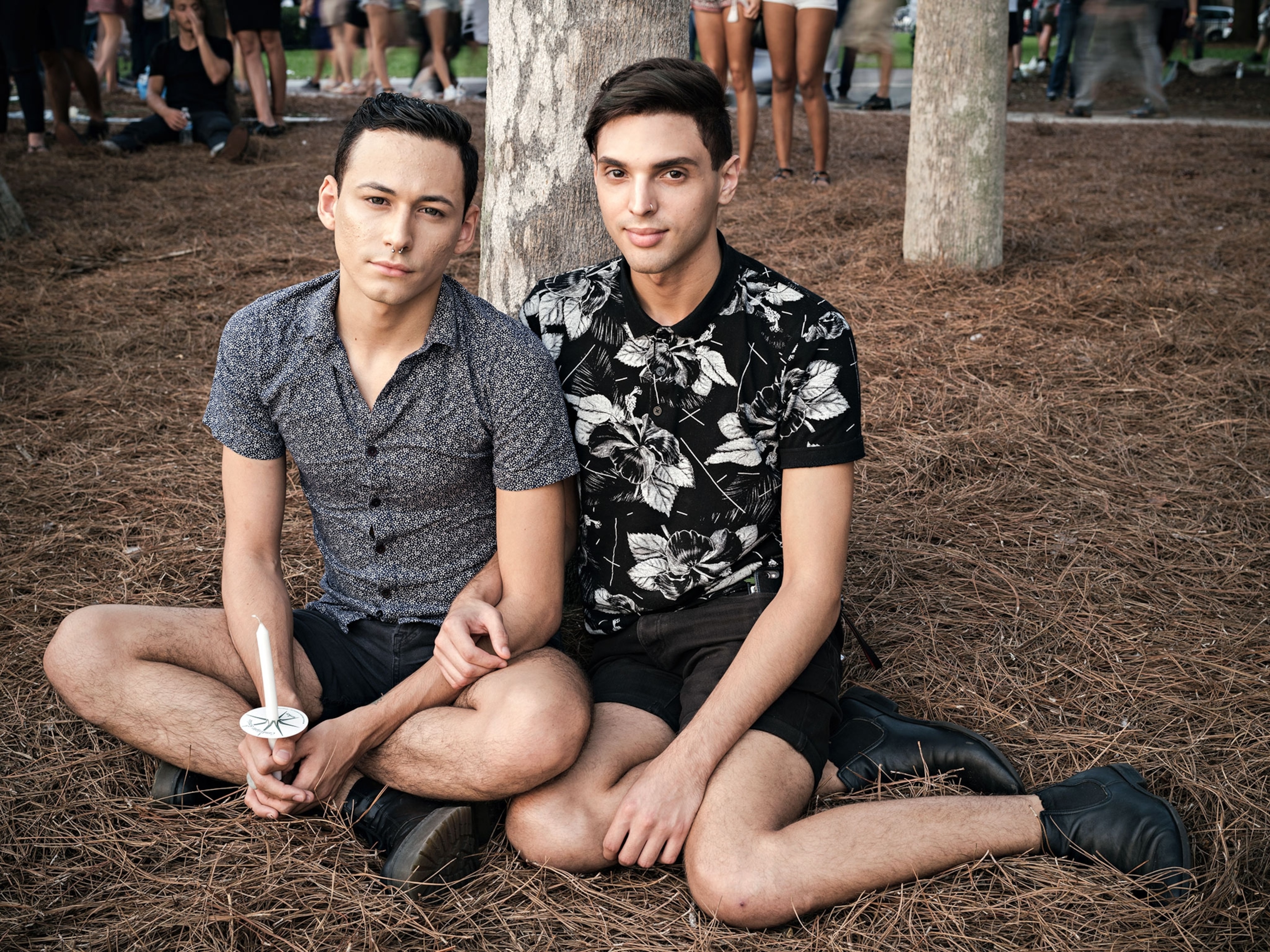
Edwin Santiago (left) and his partner Felix Soto
“It didn’t feel real the next day. It didn’t feel real the hours after that. And I think the hardest part was trying to find out if my friends were OK. I was there as it happened. I heard the gunshots and I jumped over the patio wall. Thankfully I was outside the club. I think the hardest part is still reminding yourself that if you want to text someone you can’t text that person any more. Or if you wanna see someone it’s just not possible anymore. It’s really been like an uphill battle trying to come to terms with loss, but also coming to terms with guilt because you’re still here.”
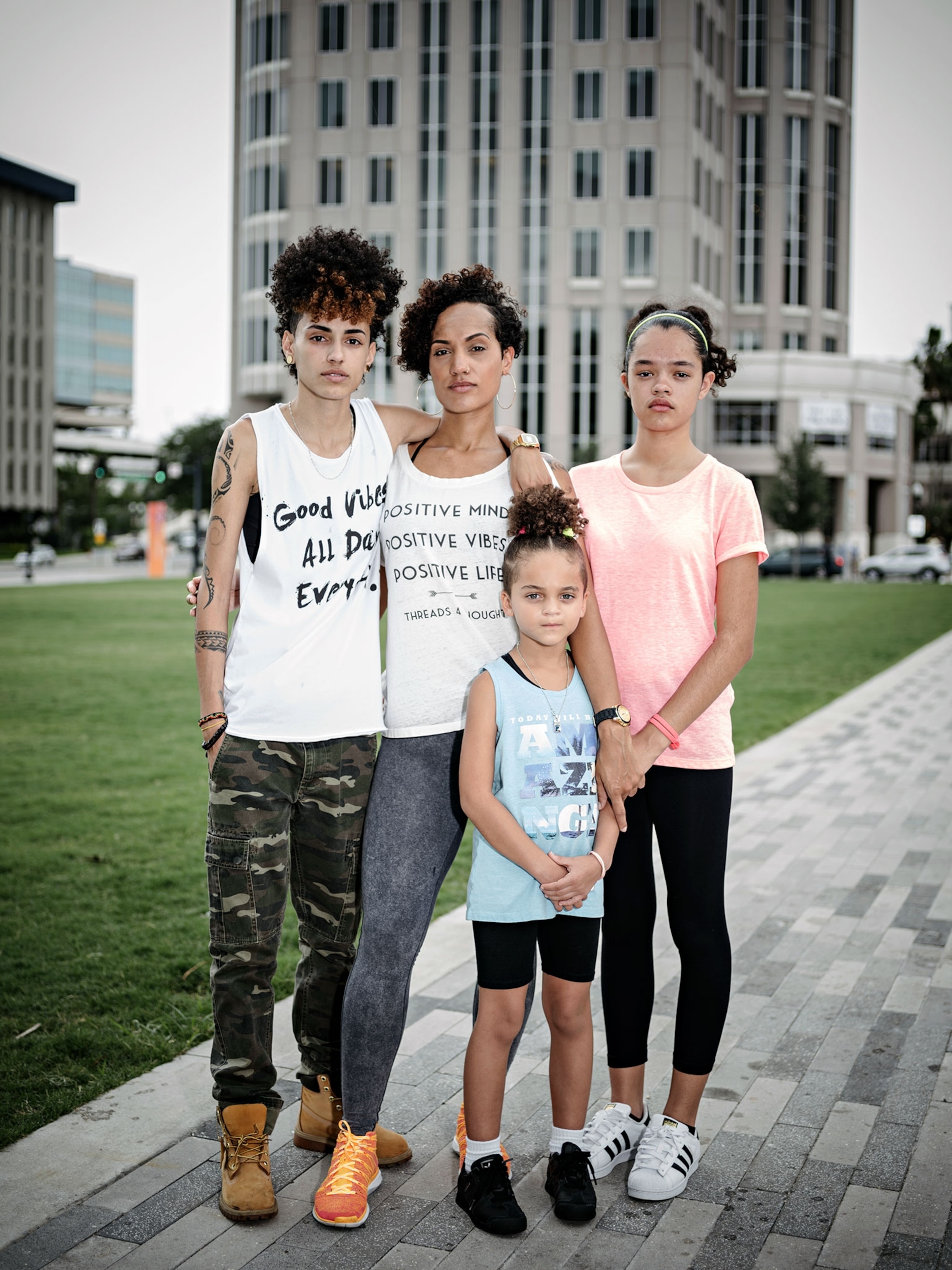
Xiomara Flores (left), with her partner, Timisha Grandstaff, and their daughters, Kiele Mahina (back right) and Samadhi Grandstaff
“Having two kids—one’s 12 and one’s six years old—and now they don’t even know if they’ll have both parents coming home one day. They don’t know if we’ll be safe. They got treated differently at school before this even happened. So now this is even more of a wake-up call, and we really just need to be aware and protect our family, and just love each other. Like, carry no hate,” Flores says.
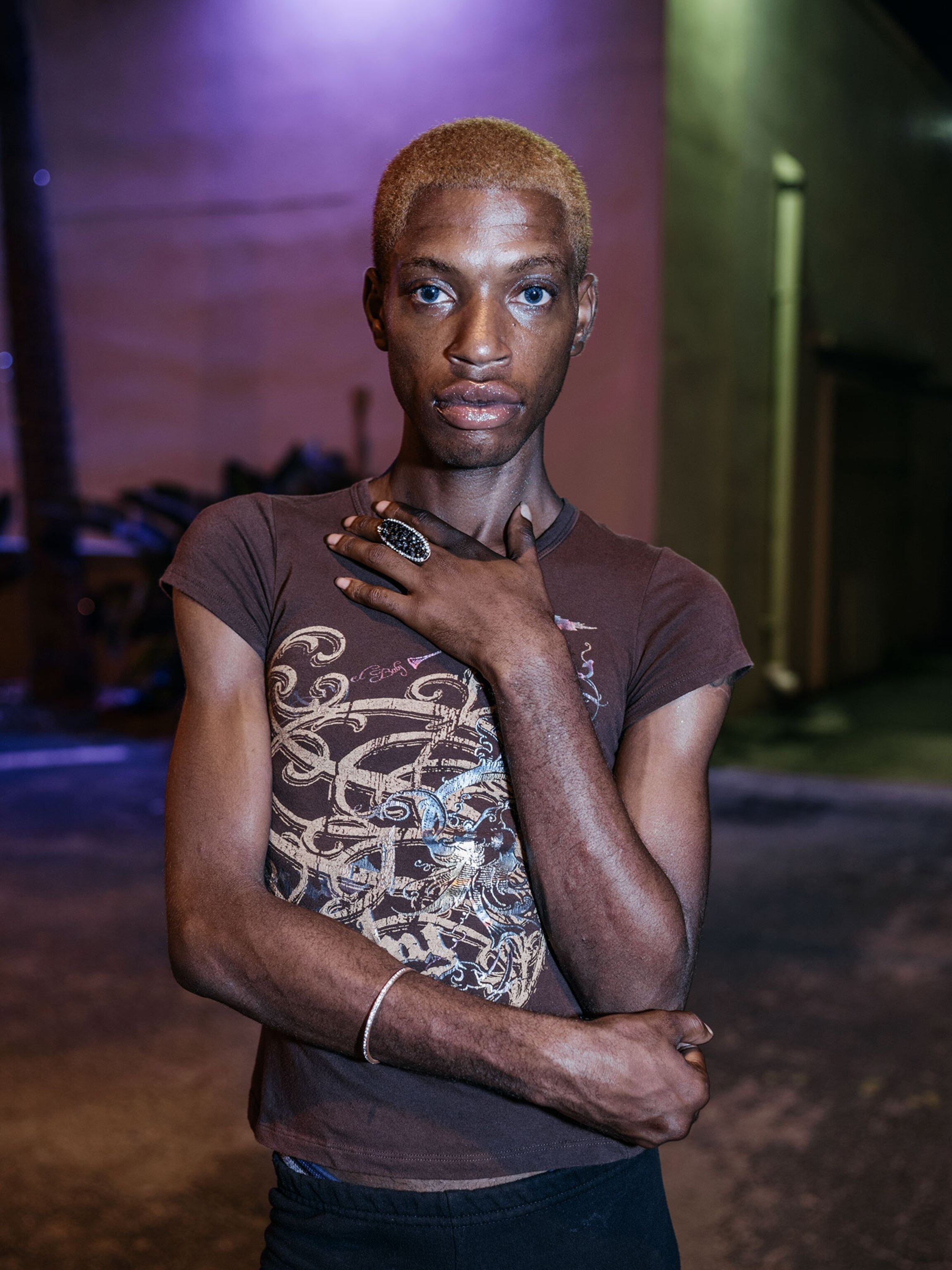
Demetrius Spires
“I was at Pulse the night of the shooting. I was on my way home. I was standing at the door when all of a sudden I heard gunshots and all that. And I ran out the door and I didn’t look back. My heart goes out to everybody that has family that was involved or killed inside that shooting.”
